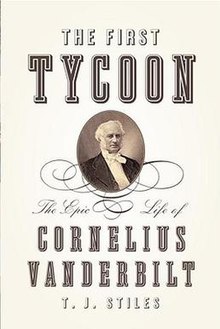
Cornelius Vanderbilt, nicknamed "the Commodore", was an American business magnate who built his wealth in railroads and shipping. After working with his father's business, Vanderbilt worked his way into leadership positions in the inland water trade and invested in the rapidly growing railroad industry, effectively transforming the geography of the United States.
Cornelius Mahoney Sheehan was an American journalist. As a reporter for The New York Times in 1971, Sheehan obtained the classified Pentagon Papers from Daniel Ellsberg. His series of articles revealed a secret United States Department of Defense history of the Vietnam War and led to a U.S. Supreme Court case, New York Times Co. v. United States, 403 U.S. 713 (1971), which invalidated the United States government's use of a restraining order to halt publication.

William Henry Vanderbilt was an American businessman Known as "Billy," he was the eldest son of Commodore Cornelius Vanderbilt, an heir to his fortune and a prominent member of the Vanderbilt family. Vanderbilt became the richest American after he took over his father's fortune in 1877 until his own death in 1885, passing on a substantial part of the fortune to his wife and children, particularly to his sons Cornelius II and William. He inherited nearly $100 million from his father. The fortune had doubled when he died less than nine years later.

Tom Reiss is an American author, historian, and journalist. He is the author of three nonfiction books, the latest of which is The Black Count: Glory, Revolution, Betrayal, and the Real Count of Monte Cristo (2012), which received the 2013 Pulitzer Prize for Biography or Autobiography. His previous books are Führer-Ex: Memoirs of a Former Neo-Nazi (1996), the first inside exposé of the European neo-Nazi movement; and The Orientalist: Solving the Mystery of a Strange and Dangerous Life (2005), which became an international bestseller. As a journalist, Reiss has written for The New Yorker, The Wall Street Journal, and The New York Times.

Ronald Chernow is an American writer, journalist, and biographer. He has written bestselling historical non-fiction biographies.

Robber baron is a term first applied as social criticism by 19th century muckrakers and others to certain wealthy, powerful, and unethical 19th-century American businessmen. The term appeared in that use as early as the August 1870 issue of The Atlantic Monthly magazine. By the late 19th century, the term was typically applied to businessmen who used exploitative practices to amass their wealth. Those practices included unfettered consumption and destruction of natural resources, influencing high levels of government, wage slavery, squashing competition by acquiring their competitors to create monopolies and/or trusts that control the market, and schemes to sell stock at inflated prices to unsuspecting investors. The term combines the sense of criminal ("robber") and illegitimate aristocracy (“baron”) in a republic.

The Accessory Transit Company was a company set up by Cornelius Vanderbilt and others during the California Gold Rush in the 1850s, to transport would-be prospectors from the east coast of the United States to the west coast.

Steve Coll is an American journalist, academic, and executive.

Jon Ellis Meacham is an American writer, reviewer, historian and presidential biographer who is serving as the Canon Historian of the Washington National Cathedral since November 7, 2021. A former executive editor and executive vice president at Random House, he is a contributing writer to The New York Times Book Review, a contributing editor to Time magazine, and a former editor-in-chief of Newsweek. He is the author of several books. He won the 2009 Pulitzer Prize for Biography or Autobiography for American Lion: Andrew Jackson in the White House. He holds the Carolyn T. and Robert M. Rogers Endowed Chair in American Presidency at Vanderbilt University.
Deirdre Bair was an American literary scholar and biographer. She won a National Book Award for her biography of Samuel Beckett in 1981.

Cornelius Kingsland Garrison was an American steamboat captain, shipping agent, shipbuilder, capitalist, and politician. He served as the 4th Mayor of San Francisco from 1853 until 1854.

Isabel Wilkerson is an African-American journalist and the author of The Warmth of Other Suns: The Epic Story of America's Great Migration (2010) and Caste: The Origins of Our Discontents (2020). She is the first woman of African-American heritage to win the Pulitzer Prize in journalism.
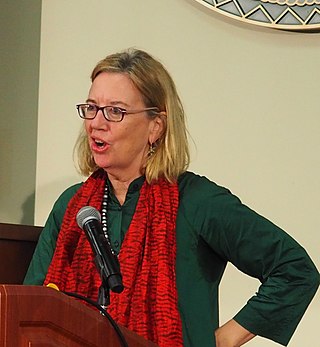
Deborah Baker is an American biographer and essayist.
The Erie War was a 19th-century conflict between American financiers for control of the Erie Railway Company, which owned and operated the Erie Railroad. Built with public funds raised by taxation and on land donated by public officials and private developers, by the middle of the 1850s the railroad was mismanaged and heavily in debt. A cattle drover turned Wall Street banker and broker, Daniel Drew, at first loaned $2 million to the railroad, and then acquired control over it. He amassed a fortune by skillfully manipulating the Erie railroad shares on the New York Stock Exchange. Cornelius Vanderbilt, who set his mind on building a railroad empire, saw multiple business and financial opportunities in railways and decided in 1866 to corner the market on Erie by silently scooping-up the Erie railroad stock. After succeeding, Vanderbilt permitted Drew to stay on the board of directors in his former capacity as treasurer.

Timothy P. Egan is an American author, journalist and former op-ed columnist for The New York Times. Egan has written nine books. Egan, a third-generation Westerner, lives in Seattle.
The 2010 Pulitzer Prizes were awarded on Monday, April 12, 2010. In journalism, The Washington Post won four awards while The New York Times won three. For the first time, an online source, ProPublica, won in what had previously been the sole province of print. A musical, Next to Normal, won the Drama award for the first time in 14 years. Country singer-songwriter Hank Williams, who died at age 29 in 1953, received a special citation. The winner(s) in each category are:
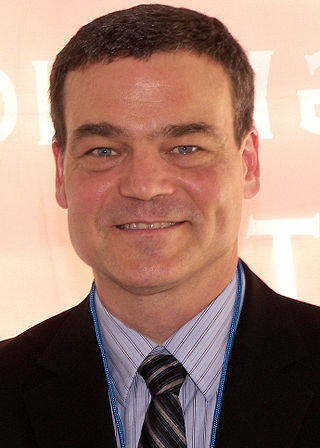
T. J. Stiles is an American biographer who lives in Berkeley, California. His book The First Tycoon: The Epic Life of Cornelius Vanderbilt won a National Book Award and the 2010 Pulitzer Prize for Biography or Autobiography. His book Custer's Trials: A Life on the Frontier of a New America received the 2016 Pulitzer Prize for History.
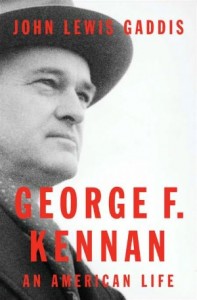
George F. Kennan: An American Life is a nonfiction book about U.S. diplomat George F. Kennan by John Lewis Gaddis that won the 2012 Pulitzer Prize for Biography or Autobiography and the National Book Critics Circle Award for biography.
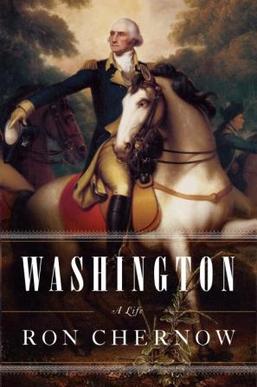
Washington: A Life is a biography of George Washington, the first president of the United States, written by American historian and biographer Ron Chernow and published in 2010. The book is a "one-volume, cradle-to-grave narrative" that attempts to provide a fresh portrait of Washington as "real, credible, and charismatic in the same way he was perceived by his contemporaries".

Alexander Hamilton is a 2004 biography of American statesman Alexander Hamilton, written by biographer Ron Chernow. Hamilton, one of the Founding Fathers of the United States, was an instrumental promoter of the U.S. Constitution, founder of the nation's financial system, and its first Secretary of the Treasury.
